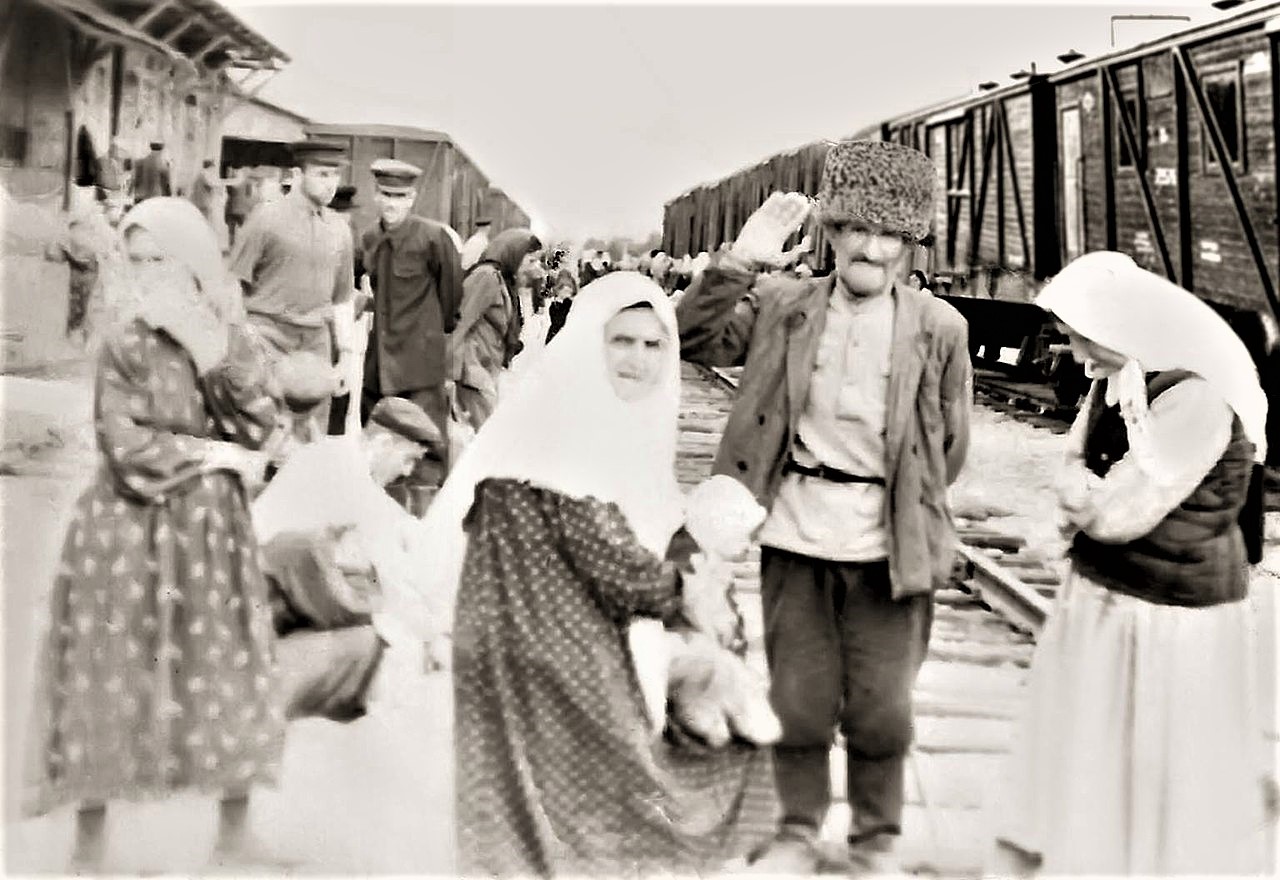After the beginning of World War II, the Soviet leadership began to massively use deportations as a method of punishing “unfortunate” national minorities from the point of view of the authorities. With the beginning of the Soviet-German war, whole peoples, recognized as potentially disloyal, were under threat of eviction.
In January 1944, under the pretext of conducting mountain maneuvers in winter conditions, the troops of the NKVD of the USSR were quartered in the Chechen-Ingush ASSR. Despite conducting some distracting “tactical exercises”, rumors about the real purpose of their arrival reached the population.
On January 31, 1944, the resolution of the State Defense Committee of the USSR No. 5073 was adopted on the liquidation of the Chechen-Ingush ASSR and the deportation of its population to Central Asia and Kazakhstan “for assisting the fascist occupiers”.
On February 23, 1944, the NKVD troops began the total deportation of the Chechen and Ingush peoples, during which, according to various estimates, from 500 to 650 thousand people were forcibly resettled from the territory of the Chechen-Ingush ASSR to Central Asia and Kazakhstan.
Due to bad weather, roadlessness and lack of transport, part of the people – mostly elderly, women and children from high mountain areas – were destroyed on the spot.
The deportation operation took place from February 23 to March 9, 1944. Deportees were transported to railway stations. From where the trains went to the settlements. They rarely fed on the way. Mortality was high, especially among children and the elderly. About half of the deportees died on the way or at the place of forced settlement because of the harsh living conditions there.
Joseph Stalin explained the deportation by the fact that the Chechens “voluntarily joined the formations organized by the Germans and took up arms against the Red Army.”
At the same time, it is known that during the military operations in the Caucasus in 1942-1944, the territory of Chechen-Ingushetia was not occupied. The main reason for the persecution and destruction is the constant struggle of the peoples of the Caucasus for national independence.
Chechen Vakha Aliyev, a participant in the Soviet-German war, when he learned about the deportation of his people, wrote a letter to J. Stalin. “We believed in you. We served the Motherland with faith and truth, not sparing life in the name of victory, thousands of my compatriots were left lying on the battlefields from Brest to Stalingrad. And you called us traitors? My people will never forgive you for this! At that time, while we were dying for the Motherland, you dealt with our mothers and sisters, you did not spare the elderly and children.” For this act, V. Aliyev was sent to Magadan for 10 years.
In 1957, those who survived were allowed to return to the Motherland. The Chechen-Ingush Autonomous Soviet Republic was restored as part of the RSFSR.
Iryna Piskariova

